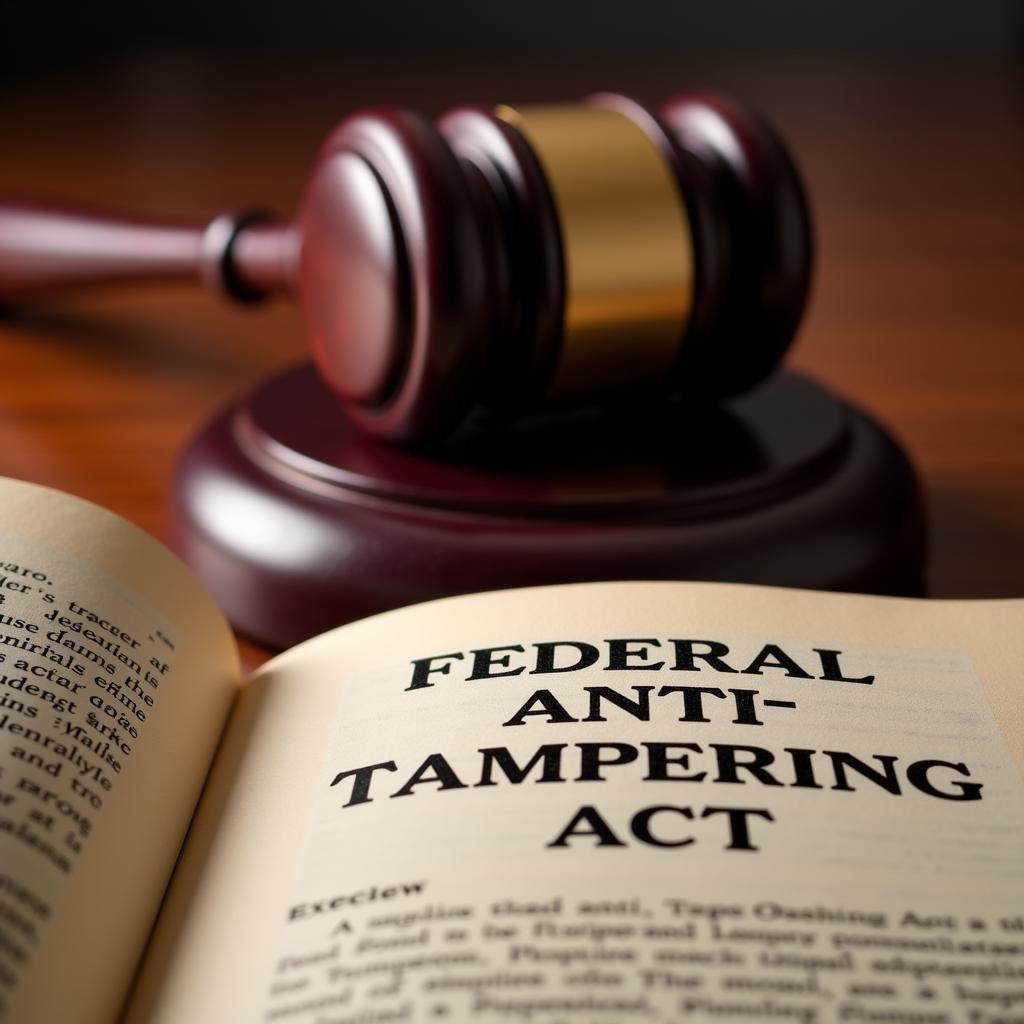Is Tampering With Food A Felony? The potential consequences of food tampering can range from misdemeanors to serious felonies, depending on the nature and severity of the act. This isn’t just a matter of spoiled groceries; it’s a serious crime with significant legal ramifications. This article will explore the complexities of food tampering laws, the potential penalties, and the factors that determine the severity of the crime.
Understanding Food Tampering Laws
Food tampering laws exist to protect the public from the intentional contamination of food products. These laws cover a wide range of actions, from minor acts of vandalism to deliberate poisoning with the intent to harm or kill. The severity of the charge depends heavily on the intent behind the tampering and the potential harm it could cause.
Intent and Potential Harm: Key Factors in Determining Severity
The intent behind the tampering is a crucial factor in determining whether it’s a misdemeanor or a felony. A prank that involves slightly altering a food product might be considered a misdemeanor. However, intentionally contaminating food with a harmful substance with the intent to cause illness or death is a much more serious offense and would likely be charged as a felony. The potential for harm is also a significant factor. Tampering with baby food, for example, would likely be treated more seriously than tampering with a less vulnerable food item.
Penalties for Food Tampering
Penalties for food tampering vary widely based on the specific laws of each jurisdiction and the circumstances of the case. Misdemeanor charges can result in fines and short jail sentences. Felony convictions, however, can lead to significant prison time, hefty fines, and a criminal record that can have long-lasting consequences.
Federal Laws and Increased Penalties
Federal laws, such as the Federal Anti-Tampering Act, come into play when tampering crosses state lines or involves products regulated by federal agencies. These federal laws often carry stricter penalties than state laws, including lengthy prison sentences and substantial fines. The act was strengthened after the 1982 Tylenol tampering incident, which highlighted the devastating consequences of widespread product contamination.
 The Federal Anti-Tampering Act
The Federal Anti-Tampering Act
What Constitutes Food Tampering?
Food tampering isn’t just about adding poison to food. It encompasses a broad range of actions that can compromise the safety or integrity of food products. This includes adding foreign objects to food, altering packaging to conceal tampering, or even making false claims about the contents of a food product.
Examples of Food Tampering
- Injecting a harmful substance into a food item.
- Placing foreign objects like glass shards or metal shavings into food.
- Tampering with packaging to make it appear unopened after contamination.
- Making false statements about the ingredients or origin of a food product.
Protecting Yourself and Your Family From Tampered Food
While the thought of food tampering can be alarming, there are steps you can take to protect yourself and your family. Carefully inspect food packaging before purchasing and consuming it. Look for signs of tampering, such as broken seals, dents, or punctures. If something seems amiss, don’t take the risk.
Conclusion
Is tampering with food a felony? The answer is often yes. Food tampering is a serious crime with severe consequences, potentially impacting public health and safety. Understanding the laws and taking precautions can help protect yourself and others from the devastating effects of tampered food products.
FAQ
- What should I do if I suspect food tampering? Report it immediately to the store management and local authorities.
- Can I sue a company if I find tampered food? Yes, you can potentially pursue legal action against the responsible party.
- How are food tampering cases investigated? Investigations involve thorough examination of the evidence, including lab testing and interviews.
- What are the long-term consequences of a food tampering conviction? A felony conviction can have lasting impacts on employment, housing, and other opportunities.
- Are there rewards for reporting food tampering? Some programs offer rewards for information leading to the arrest and conviction of food tamperers.
- How can I protect myself from buying tampered food? Inspect packaging carefully and report any suspicious findings to store management.
- What are the penalties for making false claims about food tampering? Falsely reporting tampering is also a crime and can lead to legal penalties.
Other Questions?
For further assistance regarding food safety and legal matters, explore other articles on our website related to food regulations and consumer protection.
Need Help?
For immediate assistance, please contact us: Phone: 02437655121, Email: minacones@gmail.com Or visit our address: 3PGH+8R9, ĐT70A, thôn Trung, Bắc Từ Liêm, Hà Nội, Việt Nam. We have a 24/7 customer service team.